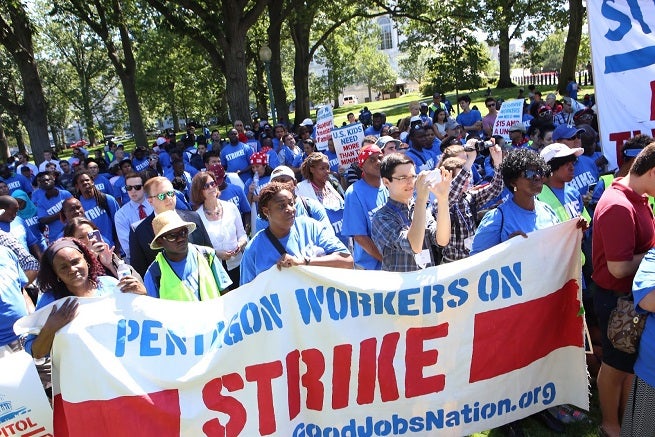Uncategorized
Damage Done by Low Wages Can’t Be Discounted

Last week was a tough one for all Americans. Teamster brother Philando Castile, a member of Local 320, was killed during a traffic stop in suburban Minneapolis. And shootings in Baton Rouge, La. and Dallas also left many on edge.
Violence in our society is a real problem with no easy solutions. But studies prove that poverty exacerbates the issue. And statistics show that racial injustice certainly affects the American economy, to the detriment of people of color.
A column in The Washington Post by Jared Bernstein today notes that despite broader economic gains made in recent years, the unemployment rate for blacks remains twice that of whites. More importantly, those numbers remain static even when comparing blacks and whites with equal education levels.
Not surprisingly, disparities in pay are also an issue. According to U.S. Census Data released last year, black men earned 70 cents for every dollar white men earned in 2014, while Latino men earned even less at 60 cents. Meanwhile, black women earned 77 cents for every dollar white women earned during the same period. Latinas only earned 71 cents.
Bernstein said lawmakers can help the problem. “It involves a policy agenda that reconnects economic growth, which we have, to broadly shared prosperity, which has been missing for a long time, particularly for communities of color,” he said. “If we continue to allow money-driven politics to block that agenda while demagogic candidates stir up more hatred, then there really is no way out of this horror.”
Income inequality is real. Salary stagnation for those outside the nation’s top earners is real. But elected officials must also look at the reality of the statistics before them. African Americans and Latinos are getting the short end of the stick. To think that doesn’t somehow effect Americans’ perceptions of the greater world around them would be naïve.